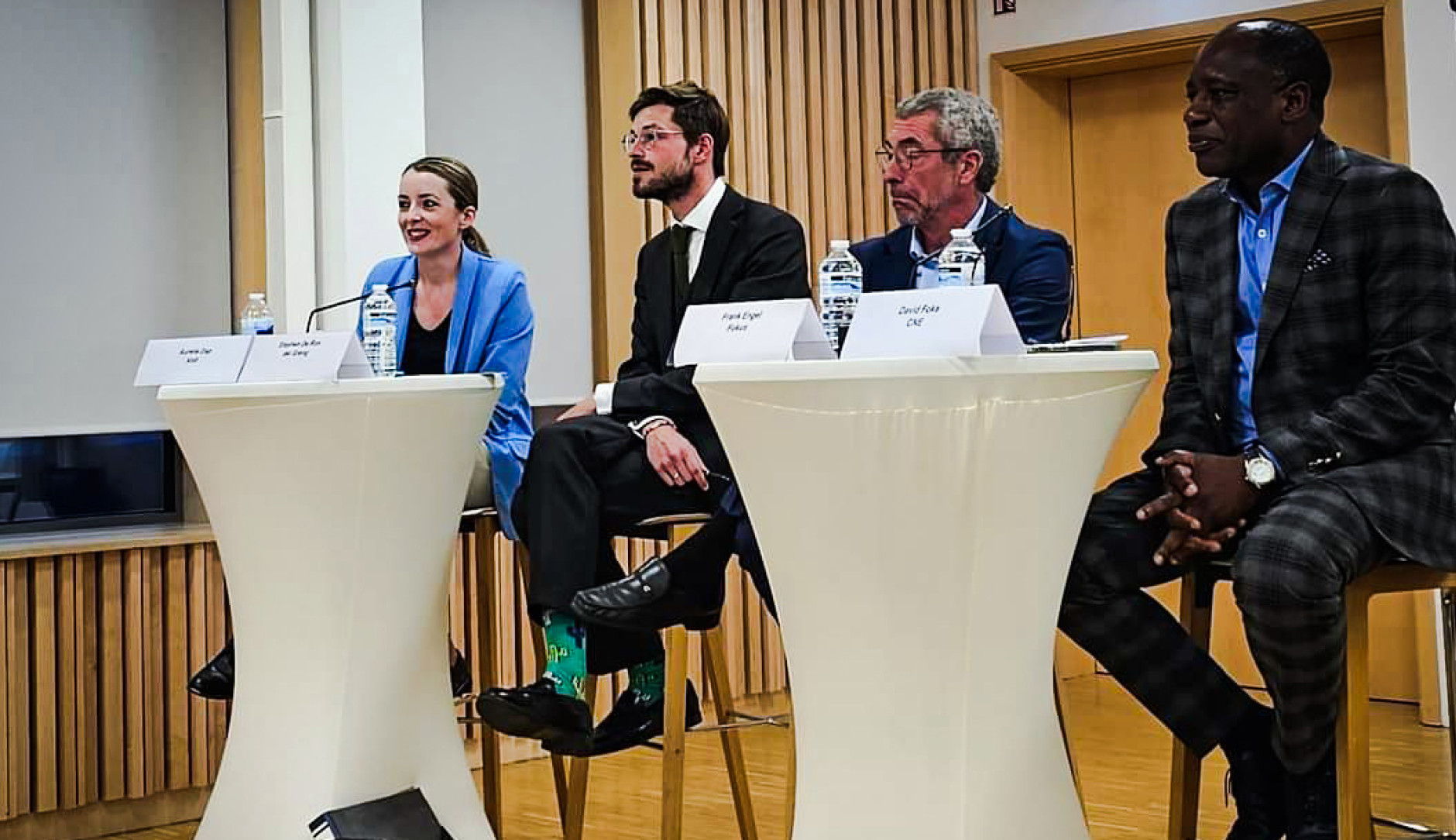Discussion round on the right to vote for foreigners
On 29 September, "D'Bréck" called for a round table discussion on the representation of non-Luxembourgers at the legislative level. Volt participated.

Besides Volt's Co-President Aurélie Dap, the following were also invited: Frank Engel (Focus), Ricardo Marques (CSV), Clara Moraru (Former Chair of CSV International), Rita Velazquez Lunghi (LSAP), Stephen De Ron (déi gréng), Line Wies (déi Lénk), David Gawlik (ADR), Toni Fernandes (Liberté-Fräiheet), Roy Holzem (déi Conservative), David Foka (CNE), Christos Floros (Change for Luxembourg) and Serge Kollwelter (Chair of ASTI until 2009). The evening was chaired by Athanase Popov, President of d'Bréck.
Some important aspects were discussed. First of all, the referendum of 2015 was discussed, in which the question of parliamentary voting rights for foreigners was answered in the negative by most Luxembourgers. The question was raised as to whether a new referendum should be held, as mentalities may have changed and the referendum at that time was held in a suboptimal setting. Volt, however, considers this questionable. It seems logical that privileged people are unlikely to give up their privilege in a survey. If this were done every time, people with dark skin or women would probably never have been given the right to vote. Volt assumes that a referendum should not be the criterion for deciding on the rights of a non-privileged minority.
It was then stressed that it would now simply be important to represent all the country's inhabitants in parliament, even if they do not have Luxembourg nationality. The "simple" acquisition of citizenship was not considered sufficient, as it is accompanied by several problems. For example, dual citizenship is not possible in some countries, such as the Netherlands or Austria, which raises the problem of having to give up one's nationality and origin in order to be able to vote.
Aurélie Dap therefore pointed out Volt's proposal of the electoral programme in which the right to vote should be made possible for EU foreigners. Aurélie Dap pointed out that the idea here was to gradually introduce voting rights for all foreigners and noted that Luxembourg was already going further with the EU demand that EU foreigners be allowed to vote in municipal elections and was also granting all foreigners the right to vote in municipal elections.
It was further stated that Luxembourg could only develop because of its foreign labour force and a large immigration. Therefore, it is a duty of the State of Luxembourg to represent all its inhabitants in order to establish a true democracy. After all, 47.4% of the population does not have Luxembourg nationality.
The question of how else to grant more rights to cross-border workers and how to continue to support foreigners in Luxembourg was left unanswered by most parties.
Volt continues to work for the empowerment of all citizens and calls for greater cohesion within Europe.
We thank d'Bréck for the invitation and hope that the discussion on the rights of non-Luxembourgers in the country will bear fruit.